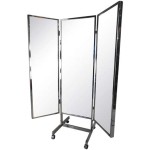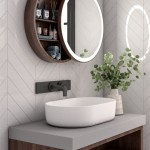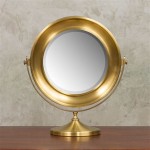How To Do Screen Mirroring Without Apple TV
Screen mirroring, the ability to wirelessly display the contents of a device's screen on a larger display like a television, offers convenience and enhanced viewing experiences for presentations, entertainment, and gaming. While Apple TV is a common solution for Apple devices, users may seek alternative methods for various reasons, including cost or compatibility with non-Apple TVs. This article outlines several methods for achieving screen mirroring from Apple devices without relying on Apple TV.
Utilizing AirPlay 2 Compatible Smart TVs
Many newer smart TVs come equipped with built-in support for AirPlay 2, Apple's proprietary wireless streaming protocol. This allows direct mirroring from Apple devices without intermediary hardware. Checking the TV's specifications or user manual will confirm AirPlay 2 compatibility.
To mirror to an AirPlay 2 TV:
- Ensure both the source device and the TV are connected to the same Wi-Fi network.
- Open Control Center on the Apple device (iPhone, iPad, or Mac).
- Tap or click the "Screen Mirroring" icon.
- Select the AirPlay 2 compatible TV from the list of available devices.
Leveraging Third-Party Mirroring Apps
Several third-party applications offer screen mirroring capabilities across various platforms, often providing compatibility beyond Apple's ecosystem.
Key features to consider when selecting a mirroring app include:
- Platform compatibility (iOS, iPadOS, macOS, Android, Windows)
- Supported streaming protocols (e.g., Miracast, DLNA)
- Latency performance (minimal lag is crucial for smooth video and gaming)
- Security features (encryption for protecting streamed content)
- Ease of use and setup procedures
- Pricing models (free vs. premium features)
- User reviews and ratings
Researching and comparing different apps will help users identify the best solution for their specific needs and device compatibility.
Connecting via HDMI Cable with Adapters
A wired connection via HDMI offers a reliable, low-latency mirroring solution, especially suitable for activities requiring precise timing like gaming. Adapters are necessary to connect Apple devices, which typically use Lightning or USB-C ports, to an HDMI input on the TV.
Steps for wired mirroring:
- Procure a compatible HDMI adapter for the Apple device (Lightning to HDMI or USB-C to HDMI).
- Connect the adapter to the Apple device.
- Connect an HDMI cable from the adapter to an available HDMI port on the TV.
- Select the correct HDMI input source on the TV using the remote control.
This method bypasses wireless networking, providing a stable connection regardless of network conditions.
Using Chromecast Devices for Google Cast Compatibility
Google Chromecast devices offer another method for mirroring content from Apple devices. While Chromecast primarily uses Google Cast, some apps on iOS and iPadOS support casting directly. This allows users to stream specific app content, rather than mirroring the entire device screen.
To cast from compatible apps:
- Ensure the Chromecast and the Apple device are on the same Wi-Fi network.
- Open a compatible app (e.g., YouTube, Netflix, Spotify).
- Locate and tap the Cast icon.
- Select the Chromecast device from the list of available devices.
While not full screen mirroring, this offers a convenient way to stream content from supported apps.
Mirroring via Windows PCs with Streaming Software
Some software applications for Windows PCs enable the computer to act as an AirPlay receiver. This allows mirroring from Apple devices to the PC, which can then be displayed on a connected monitor or TV.
Steps for mirroring via a PC typically involve:
- Installing AirPlay receiver software on the Windows PC.
- Connecting the PC to the TV or monitor.
- Enabling AirPlay on the PC software.
- Selecting the PC as an AirPlay target from the Apple device's Control Center.
This method offers an indirect way to mirror to a display not directly compatible with AirPlay, though it requires an intermediary PC.
Exploring Reflector Software
Reflector is a dedicated wireless mirroring receiver application available for Windows and Mac computers. It allows users to mirror their devices wirelessly to the computer, offering compatibility with both AirPlay and Google Cast. This provides flexibility for mirroring from various devices, including iPhones, iPads, Android devices, and Chromebooks, to a central computer which can then output to a larger display.
Reflector offers several features specifically designed for mirroring:
- Wireless connection for ease of use.
- Support for multiple device connections simultaneously.
- Recording capabilities for capturing mirrored content.
- Device frames to simulate the appearance of the mirrored device.
Considerations for Choosing a Mirroring Method
Selecting the optimal mirroring method depends on several factors:
- Target display capabilities (AirPlay 2, Chromecast, HDMI inputs)
- Desired latency performance (wired vs. wireless)
- Content being mirrored (full screen mirroring vs. specific app casting)
- Availability of intermediary devices (PC, adapters)
- Budget constraints (cost of apps, adapters, or software)
Evaluating these factors will help users determine the most suitable and cost-effective solution for their screen mirroring needs.

6 Free Ways To Mirror Iphone Samsung Tv Without Apple

How To Mirror Iphone Tv Without Apple

How To Mirror Iphone Tv Without Apple Airdroid

How To Mirror Iphone Tv Without Apple 3 Methods 2024

5 Solutions To Airplay Mirroring Without Apple Tv 2024 Dr Fone

Use Airplay Mirroring On Lg Tv With Iphone Without Apple Here S How Redmond Pie

5 Solutions To Airplay Mirroring Without Apple Tv 2024 Dr Fone

How To Mirror Your Iphone Or Ipad Screen On Apple Tv A Smart Macrumors

How To Connect An Ipad Tablet A Tv Without Apple Streaming Box
Screen Mirroring Iphone To Tv With Or Without Airplay







